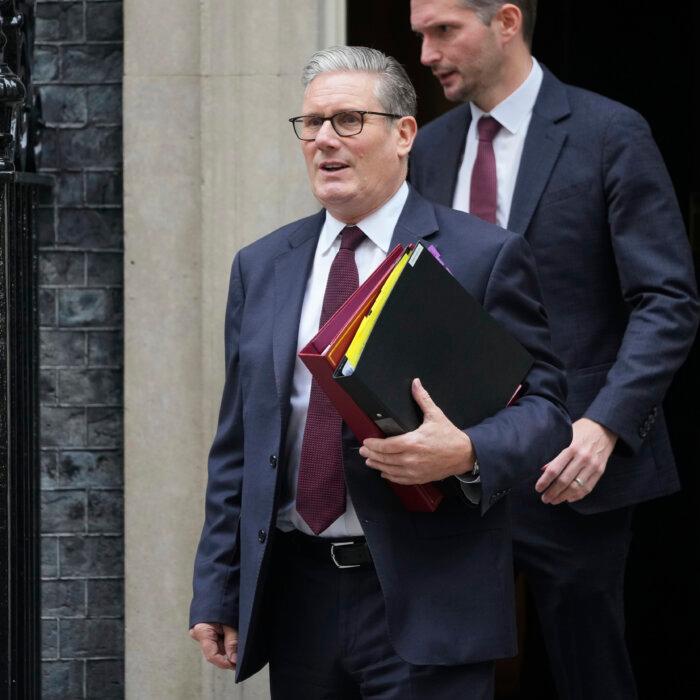G7 allies will discuss the prospect of more sanctions on Russia if President Vladimir Putin continues to resist calls for an unconditional ceasefire in Ukraine, Prime Minister Sir Keir Starmer has said.
Starmer said targeting Moscow with further action would “undoubtedly” form part of talks at the international summit this week unless the Kremlin engages in peace talks.
Ukrainian President Volodymyr Zelenskyy is expected to attend the conference in Canada, where leaders from the world’s major economies are descending on a luxury mountain lodge in the Rockies for talks on global security.
Zelenskyy has accepted a U.S.-backed cease-fire proposal and offered to talk directly with his counterpart in Moscow, but the Russian leader has so far shown no willingness to meet him.
Speaking to reporters travelling with him to Kananaskis, Starmer was asked if he expects additional sanctions on Russia to be agreed by international partners.
“We’ve got President Zelenskyy coming, so that provides a good opportunity for us to discuss again as a group,” he said.
“My long-standing view is, we need to get Russia to the table for an unconditional cease-fire.
“That’s not been really straightforward. But we do need to be clear about we need to get to the table and that if that doesn’t happen, sanctions will undoubtedly be part of the discussion at the G7.”
Starmer faces a busy week of diplomacy with spiralling conflict in the Middle East and the war in Ukraine top of the agenda in the talks between leaders from Canada, the United States, France, Italy, Japan, Germany, and Britain.
It comes as the Foreign Office advised against all travel to Israel following further retaliatory attacks by Iran. Downing Street has not ruled out moving to evacuate UK nationals from the country if the situation deteriorates.
In his first bilateral meeting at the summit, the prime minister and his Italian counterpart Giorgia Meloni reiterated their “enduring support” for Kyiv.
“[They agreed] that it is a topic of our common security that they looked forward to discussing in the next two days,” a Downing Street readout said, describing the conference as coming at a “vitally important moment for the world.”
Starmer is also likely to have talks with U.S. President Donald Trump as well as French President Emmanuel Macron, with whom he has been making plans for a so-called “coalition of the willing” to send peacekeeping forces to Kyiv.
The prime minister told reporters he had a “good relationship” with the U.S. president, which is “important” at a time of heightened global instability.
“I’ve been saying, for probably the best part of six months now, we’re in a new era of defence and security, a new era for trade and the economy,” he said.
“And I think it’s really important for Britain to play a leading part in that, and that’s what I’ll be doing at the G7, talking to all of our partners in a constructive way.
“And I’m very pleased that I have developed good relations with all the G7 leaders.”
Meanwhile, Trump said he had told his Russian counterpart that the war in Ukraine “should end” in a phone conversation on Saturday.
In a post on his Truth Social platform, the U.S. leader said: “[President Putin] feels, as do I, this war in Israel-Iran should end, to which I explained, his war should also end.”






